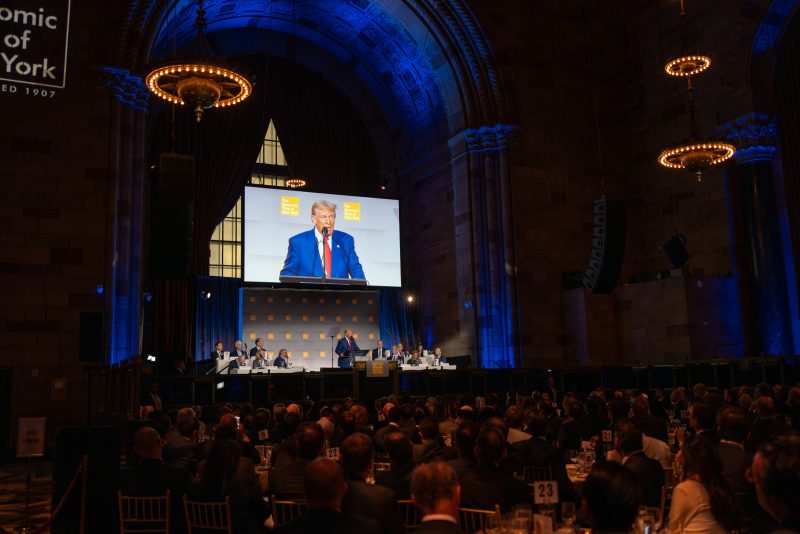
GOP Shrugs Off Trump’s Escalating Trade Threats
The Republican Party (GOP) has shown a pattern of downplaying the increasingly extreme threats to global trade posed by former President Donald Trump. Despite Trump’s aggressive and often unpredictable approach to trade policies during his time in office, many GOP leaders have remained reluctant to openly challenge his tactics or rhetoric. This stance has raised concerns among experts and analysts about the long-term implications for U.S. trade relationships and economic stability.
During his presidency, Trump pursued a protectionist agenda marked by a series of high-profile trade disputes with major economic partners such as China and the European Union. He imposed tariffs on a wide range of goods, claiming that such measures were necessary to protect American jobs and industries from unfair competition. While some within the GOP expressed reservations about the potential consequences of these actions, they largely refrained from direct criticism of the president, opting instead to offer cautious support or remain silent on the matter.
One of the key reasons behind the GOP’s reluctance to challenge Trump’s trade policies is his significant influence within the party. Trump enjoys a strong base of support among Republican voters, many of whom view his tough stance on trade as a sign of strength and a commitment to putting America first. GOP lawmakers who have spoken out against the former president’s trade agenda have often faced backlash from their constituents and risked being labeled as disloyal or weak on key issues.
In addition to political considerations, the GOP’s muted response to Trump’s trade threats can also be attributed to a broader shift in conservative ideology towards protectionism. Over the past decade, the Republican Party has increasingly moved away from a traditional free-market approach to trade in favor of a more nationalist and interventionist stance. This ideological realignment has made it easier for GOP leaders to rationalize or downplay Trump’s trade policies as a necessary response to global challenges, rather than a departure from long-standing principles of free trade.
Despite these factors, there are growing concerns among economists and trade experts about the potential consequences of the GOP’s complacency towards Trump’s trade threats. The former president’s aggressive tactics have already sparked retaliatory measures from key trading partners, resulting in disruptions to global supply chains and increasing costs for American businesses and consumers. Moreover, the erosion of international norms and institutions governing trade under Trump’s administration has raised doubts about the long-term stability of the global trading system.
As the GOP continues to grapple with the legacy of Trump’s trade policies, there is a pressing need for a more nuanced and proactive approach to addressing the challenges of global trade. By engaging in a constructive dialogue with partners and working towards multilateral solutions to common problems, Republican leaders can help safeguard America’s economic interests while upholding key principles of open markets and fair competition. Only by taking a more assertive and principled stance on global trade can the GOP demonstrate its commitment to promoting prosperity and stability in an increasingly interconnected world.